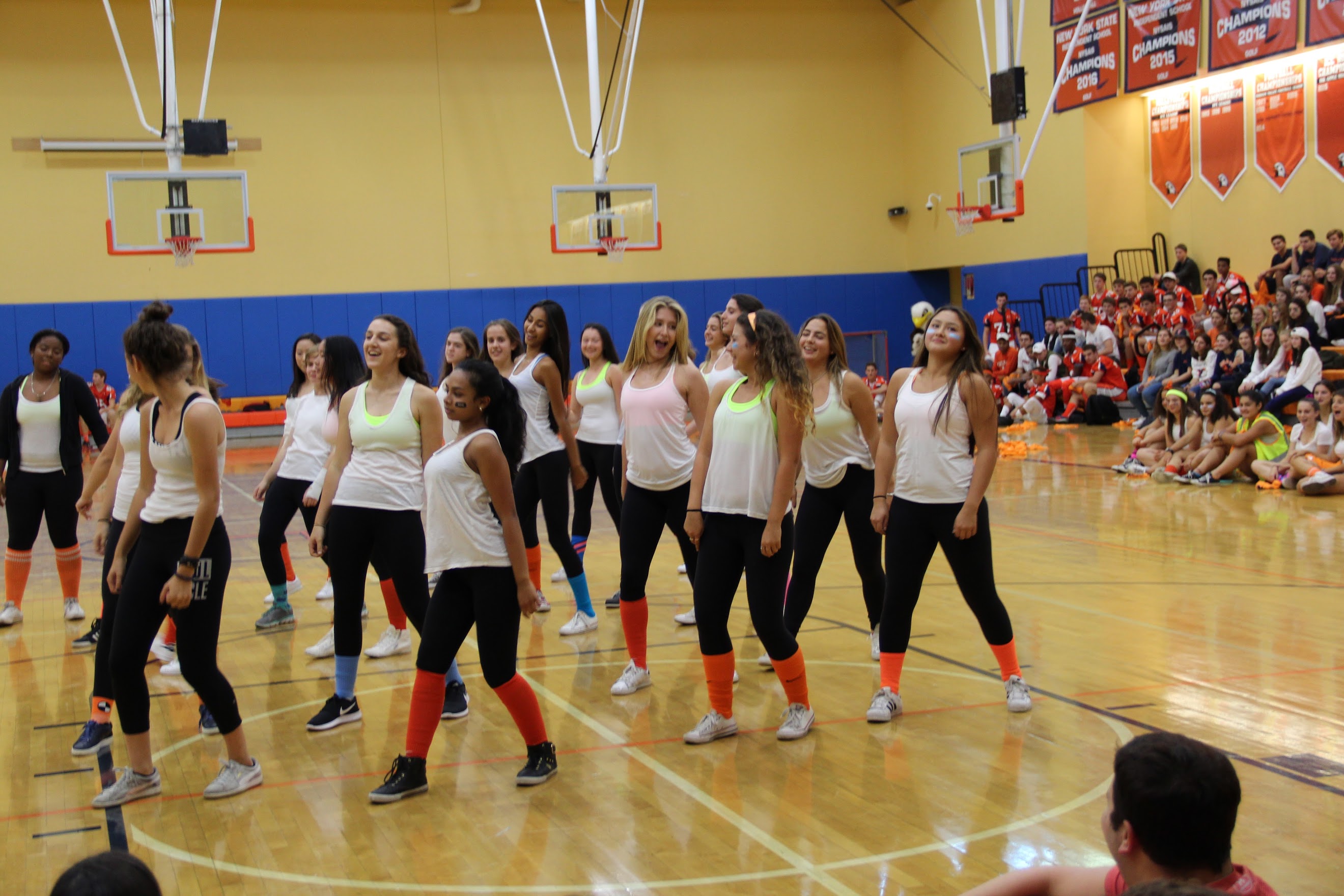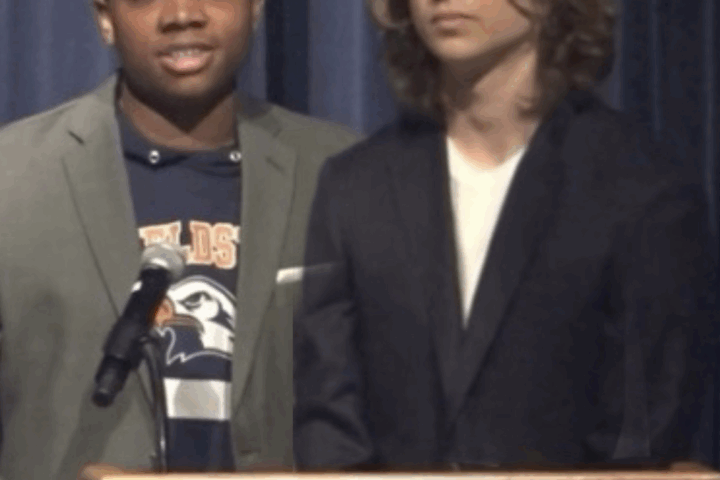Why do we have pep rallies? What role do they have at Fieldston? On paper, pep rally performances are meant to garner support for our school, our athletes, and our soon-graduating seniors who will go on to compete in their homecoming games for one final time. These rallies are meant to be a display of pride and community bonding, an explosive, energetic festivity that leaves students and faculty brimming with excitement and anticipation. Perhaps because of these expectations, many teams push the boundaries to stir excitement and keep the dances fresh and engaging. Some of the community says this has sexualized the dances at pep rallies, placing an emphasis on provocativeness and sexually-charged shock factor at the expense of good-natured fun. How do we determine what is exciting and adrenalized and what is disorderly or improper? And, who sets the rules for these events? The Fieldston News went into the Upper School to investigate this issue.
First, we talked to students and asked them how they felt about pep rallies in the past. Matthew Jalazo, Form VI, told us that his first pep rally as a freshman was a silly Lion Themed production. “Yes, it was embarrassing,” said Matthew, “But it was also fun and something all of us enjoyed and as young freshman we loved the attention from upperclassmen.”
Later, Matthew talked about how pep rallies grew more provocative. “The next year the seniors ripped off their pants and wore tight revealing tank tops.” We soon realized that pep rallies have been a somewhat controversial topic for years. Although many dances never quite breached the boundaries to the point where it was punishable or overtly mentionable, many dances straddled the line of acceptability between fun and offensive.
Alie Brussel Faria, Form VI, said that the power dynamic between seniors and freshmen makes it hard for freshman to speak up for themselves and refuse participation in some uncomfortable or provocative events. She went on to discuss how sexuality is a big thing in high school for a lot of people. “That’s when people start to look at other people as sexual objects, not necessarily negatively,” said Alie. “So it’s an important time to decide how you’re going to react.”
Sarah Koppelman, Form VI, added that in most high schools, “Sports equates popularity. Athletes get more attention socially in school, and the relationship between an athlete and their body and how they are supposed to look adds a great deal of pressure.”
Others pointed out that the students at Fieldston are exposed to a tidal wave of popular culture that celebrates the very attitudes and behavior being condemned. From pop music icons who perform on national television in sexually provocative ways, to professional athletes celebrated for their aggressive behavior, our students receive conflicting messages. Since the principles of Fieldston are to develop individuals who are competent to change their environment to greater conformity with moral ideals, it is important to look at how we can use educate, but not vilify, our students.
Next, we talked to some coaches about the approval process for dances and how they balance keeping the dances entertaining as well as appropriate. Gus Ornstein, the Athletic Director at Fieldston, said that the coaches do a great job of talking to our teams and team captains about what we as a community expect the week before pep rallies. Mr. Ornstein went on to explain that coaches don’t always see the dance routines in-person before pep rallies due to the fact that many teams work on the dances after hours in practice rooms or around the school, when coaches or faculty aren’t present.
This year’s pep rally added to the discussion. On Friday, October 14th, the Fieldston Upper School attended the rally like every other year. During the senior football players’ performance, freshman players were brought onstage and the seniors engaged in provocative and sexually explicit “dance moves” in front of the school- moves that many described as “grinding.” The Fieldston community came together the following Monday for an assembly to discuss the matter. During this assembly, the senior members of the team delivered a thoughtful apology and acknowledged that their actions were inappropriate.
Several Fieldston students were shocked and disappointed by what they saw on stage. Alie said, “There were a lot of different pieces that were wrong with it.” She also said that the idea that two male students “grinding” is funny is problematic in the first place, making mockery of sexualities and reinforcing heteronormative culture.
While students expressed disappointment, many said this was unlike the senior football players and argued that this was a moment of misjudgment on their part. Nick Francoeur, Form V, said, “In the heat of the moment of the pep rally environment, the seniors misrepresented themselves and the football culture here at Fieldston. The seniors realized their mistake and are definitely open to talk with members of the community about moving forward.”
Mr. Ornstein offered the perspective of someone who played college football at Notre Dame and has been immersed in athletic culture his entire life. Mr. Ornstein said that it was always important for him to maintain a positive athletic culture here at Fieldston, specifically a football culture that avoids some of the negative stereotypes portrayed by the NFL (i.e. hazing, over-aggression, etc.).
Mr. Ornstein said, “And here at Fieldston, we work hard to represent ourselves in another way.” Mr. Ornstein attributed the incident to a mistake in judgment by otherwise great kids with good intentions.
He said, “I’d back those kids any day, we all make mistakes, none of them meant to hurt anybody, but they realized they made a mistake and handled the repercussions well. This was a learning experience for them and for the school.”
We soon discovered that this discussion of pep rallies and sexualization in high school has started a dialogue focused on improving the thoughtful, conscious, and ethical atmosphere at the Fieldston School. Although there is no quick fix for this issue, an issue that is deeply ingrained in societal perceptions and social behaviors, Fieldston’s reflective and mindful community continues to strive for a brighter, more aware future.






